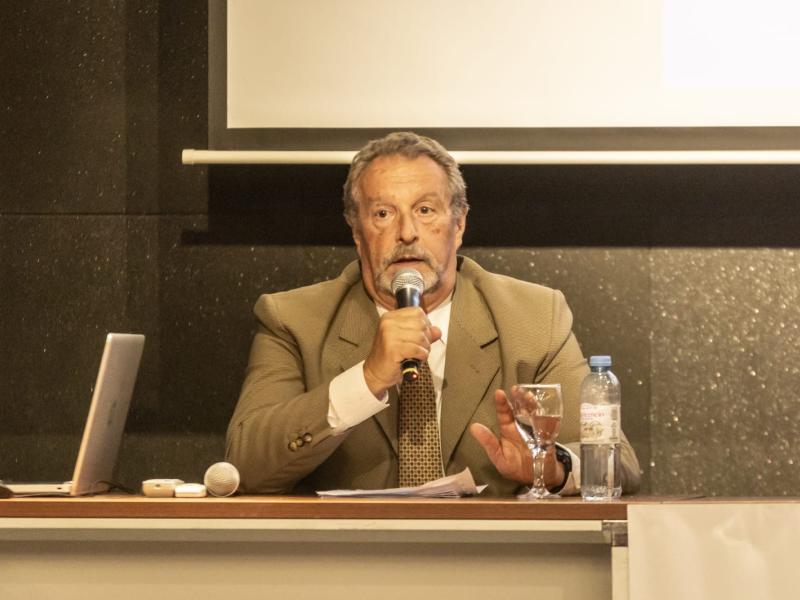An environmental catastrophe is looming in the South Atlantic because unregulated ships are over-fishing, the International Transport Workers’ Federation (ITF) and affiliated Latin American unions have warned.
“Because it’s done beyond the region of the Atlantic regulated by Argentina, this fishing is not technically illegal,” said Chris Williams of the ITF Fisheries Section. “However, there is a clear obligation under the United Nations Convention on the Law of the Sea (UNCLOS) for States to reach agreements to manage fish stocks. That simply hasn’t happened here.
“The ITF and its affiliated unions in the region call on all countries whose ships are fishing the region to urgently come together with Argentina and agree precautionary quotas based on scientific evidence. Otherwise, we fear important fish species will be wiped out and no-one will be able to make a living fishing there.”
The high seas in the South West Atlantic are the only region of the world’s oceans without a functioning UN regional fisheries management organisation (RFMO). Negotiations to create such a body are greatly complicated by the long-running territorial dispute between Argentina and the UK over the Malvinas/Falkland Islandswhich sit on the southern edge of the problem region.
 Lights from the largely foreign-owned fleet coalescing around ‘Mile 201’, at the limit of Argentina’s EEZ. | (Credit: CLG Noticias)
Lights from the largely foreign-owned fleet coalescing around ‘Mile 201’, at the limit of Argentina’s EEZ. | (Credit: CLG Noticias)Unregulated fishing proliferates
The livelihoods of Latin American fishers are being deeply impacted by foreign ships from South Korea, China, Taiwan, Spain and elsewhere fishing in the area off Argentina known as Mile 201. Argentina regulates fishing up to 200 nautical miles (370km) from its coast, but the region east of that is unregulated and has become a hotspot for large-scale operations.
A report (in Spanish) from Latin American socio-environmental journalist Sabina Goldaracena, commissioned by the ITF and published in December 2022, estimates that the number of fishing vessels in the region has doubled over the last fifteen years. The number of Chinese ships alone increased from 271 in 2020 to 375 in 2021, according to data from the Argentine Naval Prefecture.
The report estimates that stocks of fish, particularly squid and hake, are becoming overfished.
“We haveto get the balance right,” said Ariel Sudan of Argentine fishers’ union Centro De Patrones Y Oficiales Fluviales De Pesca Y De Cabotaje Maritimo. “It’s vital for the livelihoods of our region’s fishers that we protect the sustainability of the species in our seas."
In workshops organised by the ITF in Montevideo, Uruguay, at the end of 2022, unions from the region agreed that the situation in the area known as Mile 201 has become critical. They called on governments around the world to urgently take action on this issue, and meet their UN obligations.
END
Image credits: CLG Noticias
About the ITF: The International Transport Workers’ Federation (ITF) is a democratic, affiliate-led federation of transport workers’ unions recognised as the world’s leading transport authority. We fight passionately to improve working lives; connecting trade unions and workers’ networks from 147 countries to secure rights, equality and justice for their members. We are the voice of the almost-20 million women and men who move the world. Media contact: media@itf.org.uk



